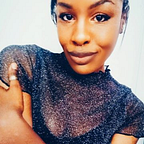There’s More to the Story: How Our Narratives Can Transform Culture
Examining the Lives of Will Smith, Daryl Davis & 200 Ex-Klansmen.
In the past decade, we’ve heard the word “narrative” ambiguously thrown around in culture. The idea of “narrative” is often adversely described as “a belief” that represents a political party, social movement, or a specific group. However, “a narrative” is not a negative device. It’s the library of our experiences, our childhoods, and the pivotal moments we’ve managed to live through. The prose of our character which makes us beautiful, ugly, good, and complicated human beings.
But there’s a difference between our narrative and a manufactured one — “The Narrative.”
What I mean by that is, a manufactured “The Narrative” encompasses pre-made thoughts, ideas, and convictions for easy mass consumption and convenience. Why is it convenient? Because it allows for anyone to rely on what “it” believes rather than having to do the heavy work of understanding what “one” thinks.
Philosopher Alex Rosenberg, the author of How History Gets Things Wrong: The Neuroscience of Our Addiction to Stories, discusses the downfalls when narratives are weaponized for power.
“People use narratives because of their tremendous emotional impact to drive human actions, movements, political parties, religions, ideologies,” he continues, “And many movements, like nationalism and intolerant religions, are driven by narrative and are harmful and dangerous for humanity.”
And similarly in Nobody Knows My Name, James Baldwin described the dependency on these mainstream narratives threaten American relations:
“There is an illusion about America, a myth about America to which we are clinging which has nothing to do with the lives we lead — this collision between one’s image of oneself and what one actually is is always very painful, and there are two things you can do about it, you can meet the collision head-on and try and become what you really are or you can retreat and try to remain what you thought you were, which is a fantasy, in which you will certainly perish.”
So, to break down the stark differences between “a narrative” and “The Narrative,” perhaps I should utilize stories we’ve heard— with…
